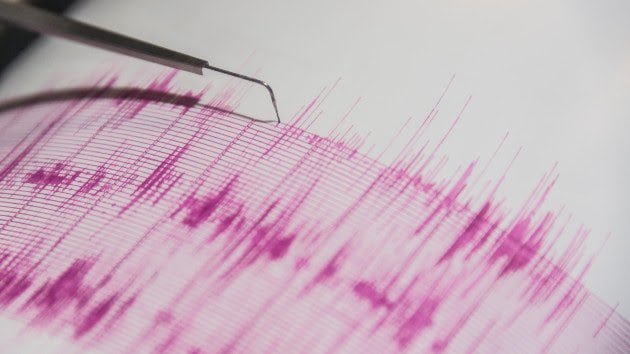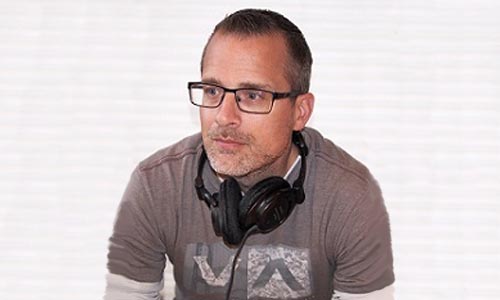(TOKYO and LONDON) — At least four people have died after a powerful earthquake struck Japan’s west coast on Monday afternoon, officials said.
An earthquake with a preliminary magnitude of 7.5 struck at about 4:10 p.m. local time, with its epicenter on the Noto Peninsula, along the Sea of Japan, according to U.S. Geological Survey data.
The Japan Meteorological Agency said it measured the quake at a preliminary magnitude at 7.6, adding there had also been more 100 jolts in the region, including aftershocks.
Japanese officials had issued a major tsunami warning for the peninsula and evacuation warnings and surrounding Ishikawa Prefecture — where the four victims were from — before downgrading it about five hours later to a tsunami warning. The lesser warning said waves could be expected high as 3 meters, or about 10 feet, near the epicenter, down from 5 meters, or about 16 feet.
Authorities were urgently directing the population to move to higher ground. Prime Minister Fumio Kishida’s office issued a statement telling residents nearby to evacuate immediately. People were being urged not to go to the coast and to stay away from waterways.
Outside of the major tsunami warning area, a tsunami advisory has been issued for the entire Sea of Japan side of the main island of Honshu and Western Hokkaido island.
Monday’s warning is the first time a major tsunami warning has been issued since 2011, when a 9.0-magnitude quake struck Tohoku, causing disastrous and deadly tsunami waves.
Initial tsunami waves had begun striking land on Monday evening, with some reportedly reaching about 1.2 meters along the Noto Peninsula and the surrounding Ishikawa and Niigata prefectures. Tsunami waves were reported as far north as Hokkaido Prefecture.
Kishida appeared briefly before television cameras at his residence, saying the government was collecting information and assessing the situation. His administration set up a disaster response office, he said. He vowed to get an accurate assessment of the situation and said that saving lives was his utmost priority.
“I urge local residents in the affected areas to evacuate,” he said. “Others in the region must be vigilant, be on the lookout as further quakes may hit.”
The earthquake could be felt in Tokyo, where it sent power lines and light fixtures swaying.
The Japan Meteorological Agency said it had recorded within 90 minutes about 19 additional earthquakes above a magnitude of 1, including the largest one. The largest quake was “very shallow,” the agency said.
Video broadcast on local TV showed collapsed concrete statues and damage to buildings. Many homes have been damaged or collapses, according to NHK.
In Ishikawa Prefecture, on the Japanese island of Honshu, as many as 40,000 are without electricity. Additionally, hundreds if not thousands of people, will be spending the night outdoors Monday night, where temperatures will be below freezing.
Officials in Ishikawa’s Wajima City, a city near the epicenter, say a fire broke out in the center of the city damaging more than 50 stores and houses on a street that hosts a morning market, the country’s Fire Disaster Management Agency said. Additional fires in Kanazawa and Joetsu, cities on the mainland near the Noto Peninsula, were extinguished, the agency said.
Bullet trains in the region were suspended. Japan Airlines and All Nippon Airways reportedly cancelled flights to and from the region. Hospitals in the region were reporting power outages, perhaps complicating treatment of the injured.
No abnormalities in regional power reactors have been reported. Hokuriku Electric Power Company, which runs a nuclear power plant in Shika, in Ishikawa Prefecture, said in a press release that it was checking the status of its equipment.
Waves up to a meter were possible in North Korea and Russia, according to the U.S. National Tsunami Warning Center.
“Don’t let your guard down, move away from the coast,” was the continuing message from Japanese authorities as night fell.
“Things can turn catastrophic in an instant,” authorities said. “The first wave may not be the largest.”
The White House said President Joe Biden received a briefing from his national security team on the earthquake in Japan, as well as developments in the Middle East, while vacationing in St. Croix with his family.
“Jill and I are praying for the people of Japan who have been impacted by the terrible earthquake,” Biden said in a statement. “My administration is in touch with Japanese officials, and the United States stands ready to provide any necessary assistance for the Japanese people. As close Allies, the United States and Japan share a deep bond of friendship that unites our people. Our thoughts are with the Japanese people during this difficult time.”
ABC News’ Sarah Kolinovsky and Joe Simonetti contributed to this report.
Copyright © 2024, ABC Audio. All rights reserved.











